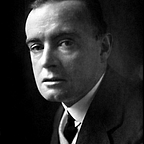Ke Ron —
Unless you are in a job that requires you act — No.
Of course you do realize the context in which the writer frames his admonition? He has set Officer Griner as that prototype which irks him. The black, lesbian, police officer that rescues — a white, bigot, government official — from imminent death. The writer, in my opinion, then somewhat disingenuously claims he has no complaint with her, yet he does begin with her prototypical to his theme.
Framing matters, and the writer carefully dances around the subject of non-action by those with duty to perform. He plays at the edges of the law, quite purposefully I think by certain rhetorical choices in setting.
If you see them drowning: lifeguard, Coast Guard
If you see them in a burning building: fireman, landlord
If their ships are sinking: Coast Guard, Navy
If their planes are crashing: ATC, first responders
If their cars are skidding: Highway Patrol, DOT
If they are overdosing: Paramedics, ER medics
If their hearts have tellingly arrested: EMT, Police
If they are choking in a restaurant: restaurateur, waiter
If they are bleeding out in an emergency room: Medics
If the ground is crumbling beneath them: Ranger, National Guard
If they are in a park and they turn their weapons on each other: Police
Now my list is by no means exhaustive on those with duty to perform. I posit it as a sub-text layer woven into the writer’s craft. I think it is unmistakable given the context in which the writer begins his tale with officer Crystal Griner.
The writer does not discriminate as to what audience, citizen or agent, he is addressing — therefore his admonition is universal in set, which I think creates a potential legal dilemma, and one worth further examination. I am no attorney so I would leave such issues as solicitation, incitement, or inchoate crimes to the experts.
